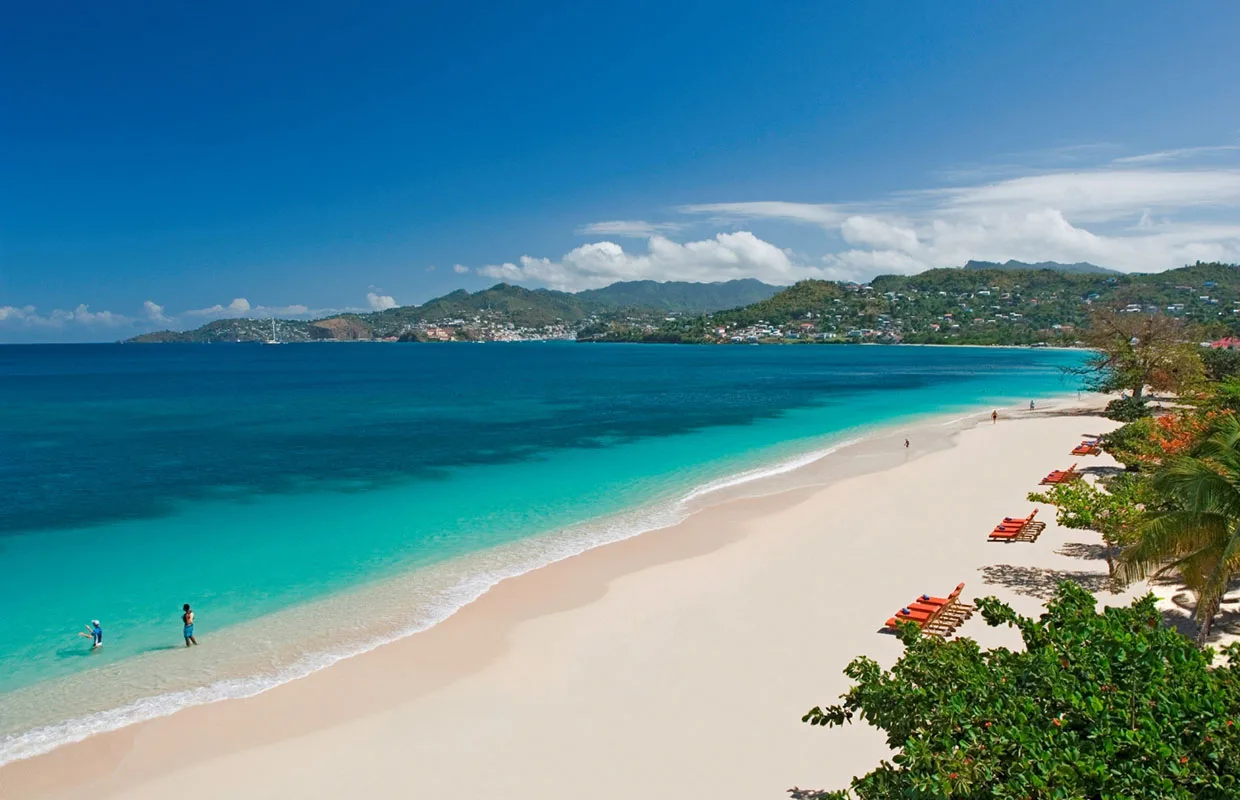Randall Dolland, Chairman of the Grenada Tourism Authority, discusses the growth and evolution of the country’s tourism offering in recent years and how the organisation is leveraging resilience programmes, empowering small businesses, and curating cultural events to celebrate Grenada and truly integrate tourism within the everyday lives of Grenadians.
Q&A WITH GRENADA TOURISM AUTHORITY
Firstly, how does Grenada present different experiences for travellers to explore?
Randall Dolland, Chairman (RD): Grenada is made up of three distinct destinations – Grenada, Carriacou, and Petite Martinique – each with something very different and unique to offer.
Grenada presents some of the best diving spots available – it is known as the shipwreck capital of the Caribbean, after all.
Here, you can explore its beautiful coastlines with fantastic beaches that are the best anywhere in the world. As Grenada is the main island of the three, of course it also has top-tier accommodation in terms of luxury properties, as well as some great boutique hotels.
Then there is Carriacou which, because it is such a small island, sees most of its people making a living by the sea, so it is home to a lot of native fisher folk.
You also have places like Sandy Island to explore – an extraordinarily beautiful islet – and some other small islands around the vicinity. For example, Saline Island, where you can go swimming with turtles; White Island, which offers beautiful clear waters and picturesque sunsets; and Paradise Beach, which is also gorgeous.
Petite Martinique, meanwhile, is a tiny island that you can walk around in about an hour and a half, offering a tranquil and traditional Caribbean experience with a focus on community and culture.
Between them, all three islands enable us to offer a great complement of services and experiences and, as such, are well-positioned to remain a yachting and culinary capital for years to come.
Eventually, we’re going to be launching new festivals that are seafood-focused, doubling down on how we utilise all of our natural resources.
What important or powerful messages are represented by your underwater sculpture parks?
RD: Off the coast of both Grenada and Carriacou, we have underwater sculpture parks. The ones in Grenada speak a lot to our culture, such as Vicissitudes or ‘The Ring of Children’ by British sculptor Jason deCaires Taylor, which highlights the unity and togetherness of the Grenadian children. His new installation, The Coral Carnival, meanwhile, celebrates the island’s annual Spicemas carnival.
Over in Carriacou, we had meaningful new sculptures installed in October last year. In particular, the storyline behind ‘A World Adrift’ speaks to the resilience of the people who make their living by the sea. It sets out how our climate is changing and that these individuals will be most affected – a very powerful message.
Scans of real children from Carriacou and Petite Martinique inspired the sculptures, which were designed to be placed in origami-style boats underwater to reflect the fragility of our environment. By using sculptures of local children, we are compelled to look to the future because it’s the next generation’s lives and livelihoods that will be most impacted by the decisions we make today.
The irony of it is that the day the sculptures were due to arrive, Carriacou was hit by Hurricane Beryl which completely flattened and devastated the island.
We decided we had to continue with the project because the message we were trying to send became much more than just rhetoric about climate change, but about the reality we were faced with.
For the first time in history, we had encountered a hurricane so powerful that some of the same children represented in the sculptures were rendered homeless.
In short, Carriacou’s climate park sculptures are not just a tourist attraction about climate change – they reflect the reality of the future we are faced with.
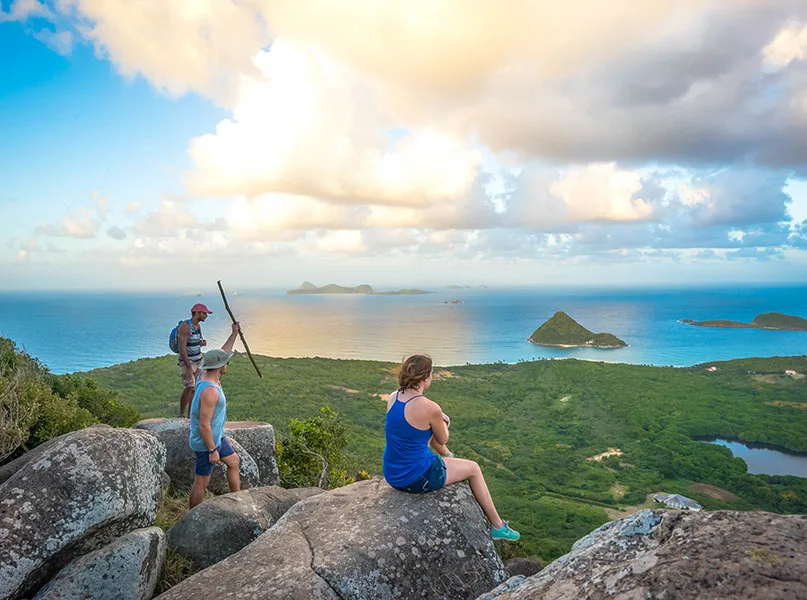
How have you seen Grenada’s tourism offering evolve over the past decade?
RD: Grenada’s tourism offering has evolved in the sense that we’ve started focusing on our niches. As a small, boutique destination, we’re not hyper-focused on mass-market tourism products but on what we do well.
That message resonates with our current focus on the culinary scene – being a spice isle, of course.
We are also focused on curating boutique and personalised experiences in the yachting, sustainability, voluntourism, and diving sectors.
Elsewhere, owing to the scenic nature of the islands, great food, and beautiful surroundings, we also have an emerging romance component. As such, we recently installed an underwater chapel at our sculpture park where, just last year, we hosted a wedding.
So, we’re always continuing to innovate and push our product forwards in that sense, whilst continuing to do what we do well.
As a destination, we’re more off-the-beaten-path than others and, for that reason, attract a more experienced, sophisticated, conscientious type of traveller that’s looking for a boutique experience to return home from with bragging rights.
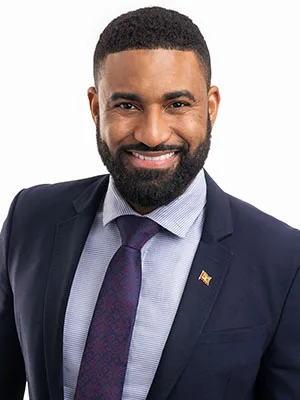
“Tourism will always continue to evolve in Grenada, as will its people. Whilst sand and sea are great, we have so much more to offer – the international language of food, health and wellness, yachting, and diving”
Randall Dolland, Chairman, Grenada Tourism Authority
How do campaigns such as Escape to Grenada and Free to Wander promote Grenada as a destination of choice by emphasising everything on offer in the tri-island state?
RD: Our campaigns are dynamic and designed for specific time periods. For example, right now, you’re able to save significant funds if travelling from Canada as we’ve introduced more Air Canada services – twice weekly, where previously we only had one.
This is because we’ve seen a shift in demand for more Caribbean destinations than the usual North American markets, which we’re taking advantage of. We’re also providing more passenger incentives to ensure we fill both flights.
We also follow a similar model with Virgin Atlantic and British Airways flights from the UK, where vacationers can take advantage of offers.
In doing this, we continue to stimulate drive and demand in our summertime – which is when international travellers would typically begin heading elsewhere. This is also why shoring up culinary attractions will be important as we seek to sustain visitor numbers throughout the year.
Another great thing about Grenada is that you always feel like you’ve got the island to yourself. You’re not going to be fighting for a space on a beach that’s overrun with visitors; the island is ‘Free to Wander’ – the name of our latest campaign.
The island is a hidden paradise to the extent that if you want a great Instagram shot, there’s going to be nobody else around you to obstruct it! You’ll be completely unobstructed, free to enjoy nature, and not feel like you’re in a tourist trap or bubble.
Ultimately, Grenada can be considered exclusive, and that’s why it’s a premium, first-rate destination.
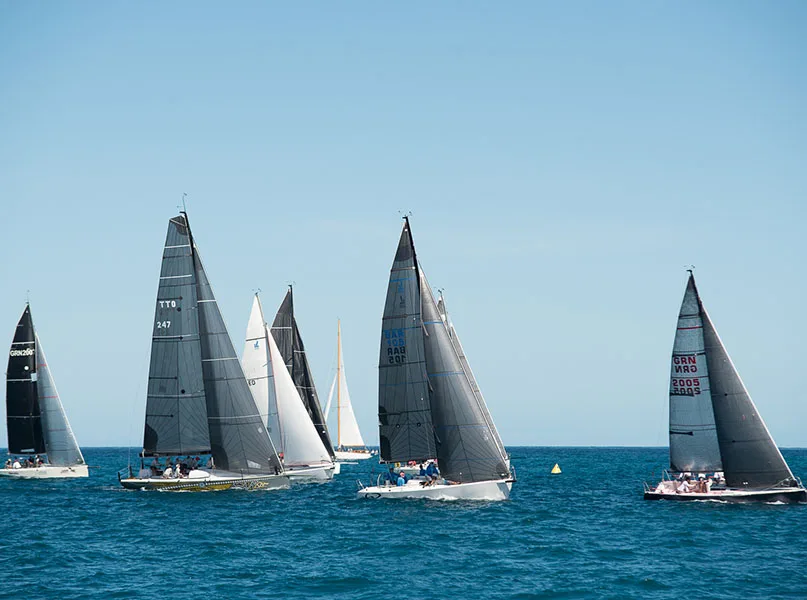
What do your programmes such as 473 Connect, Simple Stays, and voluntourism entail?
RD: 473 Connect is enabled by the advantage of our very large diaspora. It’s an incentive scheme that offers local people a chance to be patriotic and volunteer on the island, guiding groups and providing tours of the island – a channel for their passion.
Simple Stays, meanwhile, focuses on promoting smaller boutique properties, collaborating with them to help have a larger voice in the market.
It’s about empowering small businesses and giving them more visibility as they go head-to-head with the other larger resorts with virtual marketing. In doing so, we’re looking to ensure everybody gets an equal piece of the pie, so to speak, in terms of visibility.
The Simple Stays product is a fantastic complement to the destination because, again, its exclusivity speaks to the type of profile that many of our visitors are looking for.
When it comes to voluntourism, we are looking to be an environmentally conscious, sustainability driven destination.
The voluntourism product is where you can come to Grenada and sign up to plant new spices or something more community-focused – essentially giving back to your stay on the island and the country as well.
I think this speaks to the strength of our destination because it’s not one of those experiences where you go all inclusive, remain behind the hotel walls, and don’t leave until it’s time to go to the airport – or embark on an overly curated tour.
It’s about experiencing local communities, lending a hand, and immersing yourself within our culture.
Can you tell us about any government-initiated sustainability and resilience programmes and how they’re contributing to sustainable tourism in Grenada?
RD: The government is looking at improving infrastructure and ensuring we have adequate amounts of sustainable water supply.
We also have electric vehicle (EV) concessions because we’re driving a push towards sustainability and getting off traditional fossil fuels and moving towards encouraging more electric buses for visitors, for example.
We are also looking at improving our power plants so that energy is not a big drag on our systems and awarding carbon credits for solar projects.
In addition, the government is running a pilot project on sustainable building methods and practices that are more resilient to storms and our ever-changing climate. We will then try to scale, model, and deliver that across the country.
Why am I speaking about infrastructural projects that seem to be outside of the tourism remit? Because it goes back to the fact that if we take care of our country and people, then we’re taking care of our visitors.
The ‘resort’ is the destination – the whole thing is immersive. To be part of tourism in Grenada is not just about going to the hotel or the beach – it’s about being part of our culture and people; we welcome you in as one.
So, when you’re travelling on our electric buses, drinking the cleanest, healthiest water, or utilising clean energy from our sustainable power plants, it all feeds back into tourism.
Even now, we’re looking at other sustainable products, such as how we’re able to fish more efficiently and replenish the ocean. For example, the Ministry of the Blue Economy and Marine Affairs focuses on reef development, sustainable habitat improvements, and protection for marine life.
We understand that as a small island and developing state, we must sustain all these things.
As such, taking care of our people is essentially taking care of our visitors – once we start taking care of our own, we can take care of everyone else. We’re trying to merge the distinction between tourist and visitor – we treat everyone as guests.
Essentially, when you come into Grenada, it again goes back to the immersive experience of being on the island.
We’re also thinking about agriculture – growing seeds and getting more livestock in. We work to ensure we have enough volume to sustainably develop our food sources because food security is huge, especially in a world with emerging export and import tariffs. As the world becomes more unreliable, we now must ensure we are taking care of ourselves.
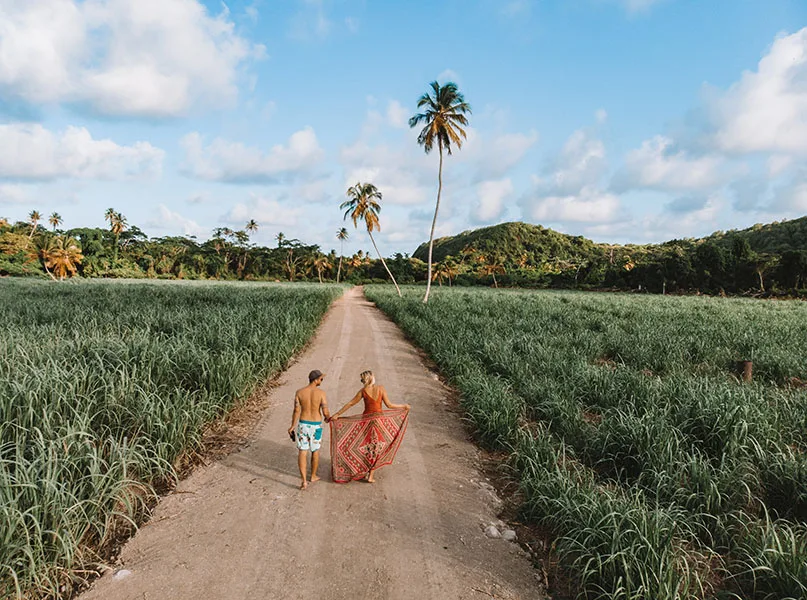
Grenada was honoured as Yachting Destination of the Year 2023 by Caribbean Journal during the Caribbean Travel Awards. What do accolades such as this mean to the organisation?
RD: We’ve won a tonne of awards and accolades from multiple sources, but our focus remains on doing what we do and doing it well – the idea is that accolades will come naturally as a result of our hard work and focus.
With yachting, we’re changing our legislation to ensure that it is as up-to-date, environmentally-conscious, and sustainability-focused as possible – we want to make sure that we have best benchmark processes in place.
We’re also looking into wellness and delivering new niches in medical tourism. As such, we have a new hospital opening in partnership with Mount Sinai, a big US-based medical system, which means we’re going to open the door to visitors who are looking to travel to for medical purposes and can then heal and recuperate in Grenada.
All of the above is about focusing on doing what we do well and ensuring we lead the charge in becoming the gold standard for any sort of tourism product in the Southern Caribbean.
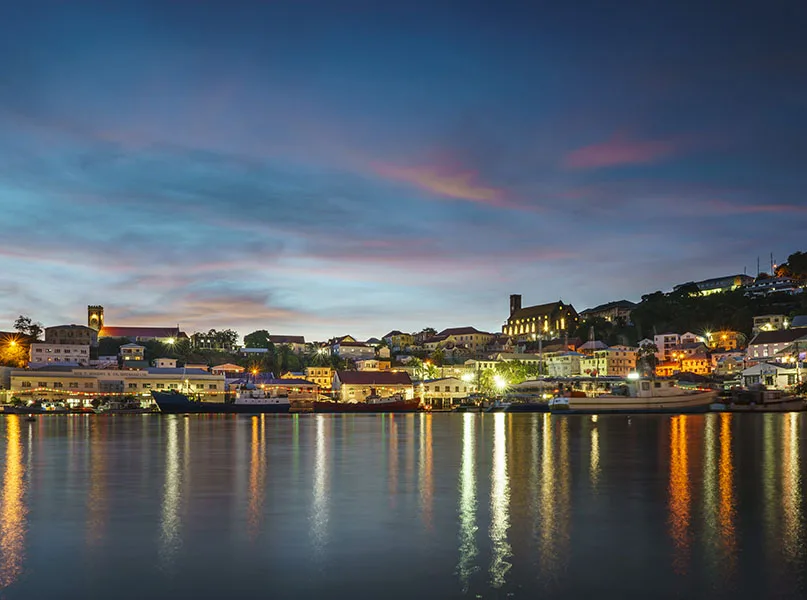
Finally, are you optimistic about the future of the tourism industry in Grenada?
RD: Absolutely! We’re optimistic for the future of tourism because we’re moving away from typical models, differentiating ourselves as a destination that truly integrates tourism.
Indeed, in Grenada, tourism is part of our everyday – it’s an industry that is so intricately interlocked within everything else. You don’t have to go ‘into’ tourism to participate.
In other words, you don’t have to open a restaurant or work at a hotel, airport, or port to be participating in tourism as we’re actively integrating it into our everyday lives.
That’s the sort of tourism we’re promoting on the island. As such, we’re about to launch a new campaign that encourages going into schools and communities, further establishing integration.
Tourism in Grenada is about immersive experiences – sampling our national dish, oil down, or walking in the spice fields amongst the cocoa and nutmeg groves – that is tourism.
Maybe you’re drinking our herbal teas whilst sitting beside a waterfall, enjoying the beach and some rum with local people, listening to music, participating in our largest cultural festival, Spicemas, or one of the many other festivals we have on the island – our way of life is the tourism product.
When you have that ease of integration, you have more of a collective buy-in from everybody – from stakeholders to tourists because we are the tourism product, with the island being only the destination. That is what visitors are looking for and what the holistic buy-in is.
Tourism will always continue to evolve in Grenada, as will its people. Whilst sand and sea are great, we have so much more to offer – the international language of food, health and wellness, yachting, and diving.
Everything we do is part and parcel of integration – it’s all about how we continue as a people to develop alongside tourism.


